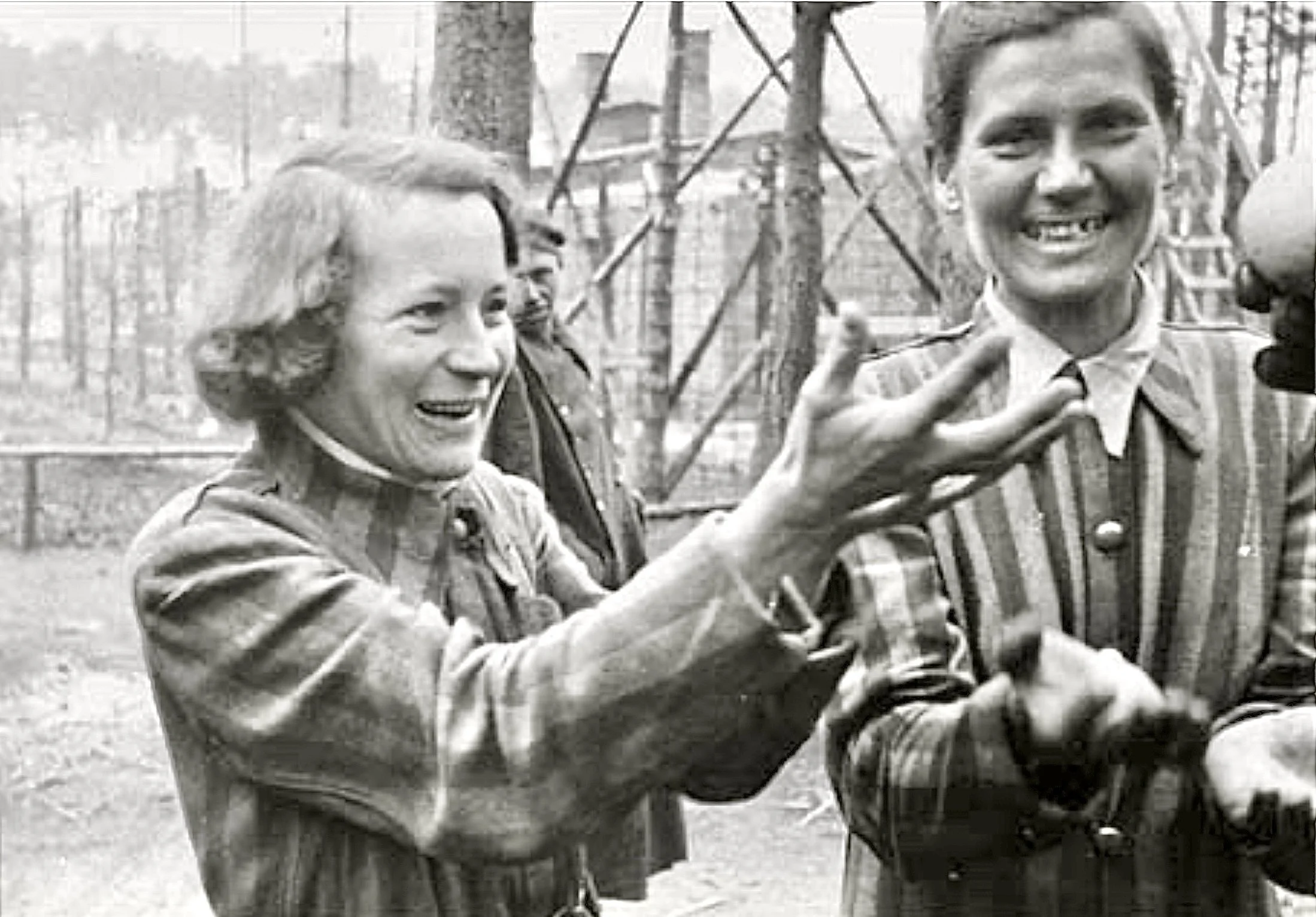WWII 319th Glider Field Artillery and Supporting Units
82nd Airborne Division
A-Battery 319th Glider Field Artillery, Photo taken June 20, 1945 in Epinal, France // See Names
“All The Way”
Honor, sacrifice; meaningful words often taken for granted. These words are at the heart of this story — the story of the enlisted men and officers of the 319th Glider Field Artillery, 82nd Airborne in World War II. Their motto still today, “All the Way.”
The 319th was an airborne artillery glider group of the 82nd Airborne Division. The CG-4A Waco and British Horsa gliders the 319th used were very different than modern day gliders. They were relatively large engineless aircraft used to transport howitzers, jeeps, ammunition and men.
Towed by a C-47 transport plane (see below) to their destination, the gliders were untethered and glided silently – and undetected - the final distance into enemy territory.
Douglas C-47 Skytrains flying in a tight “V” formation
Because of the size and design of the gliders and the extremely hazardous nature of these flights, many believe “the combat glider was the only aircraft built to crash.”
(slideshow, side controls to next image)
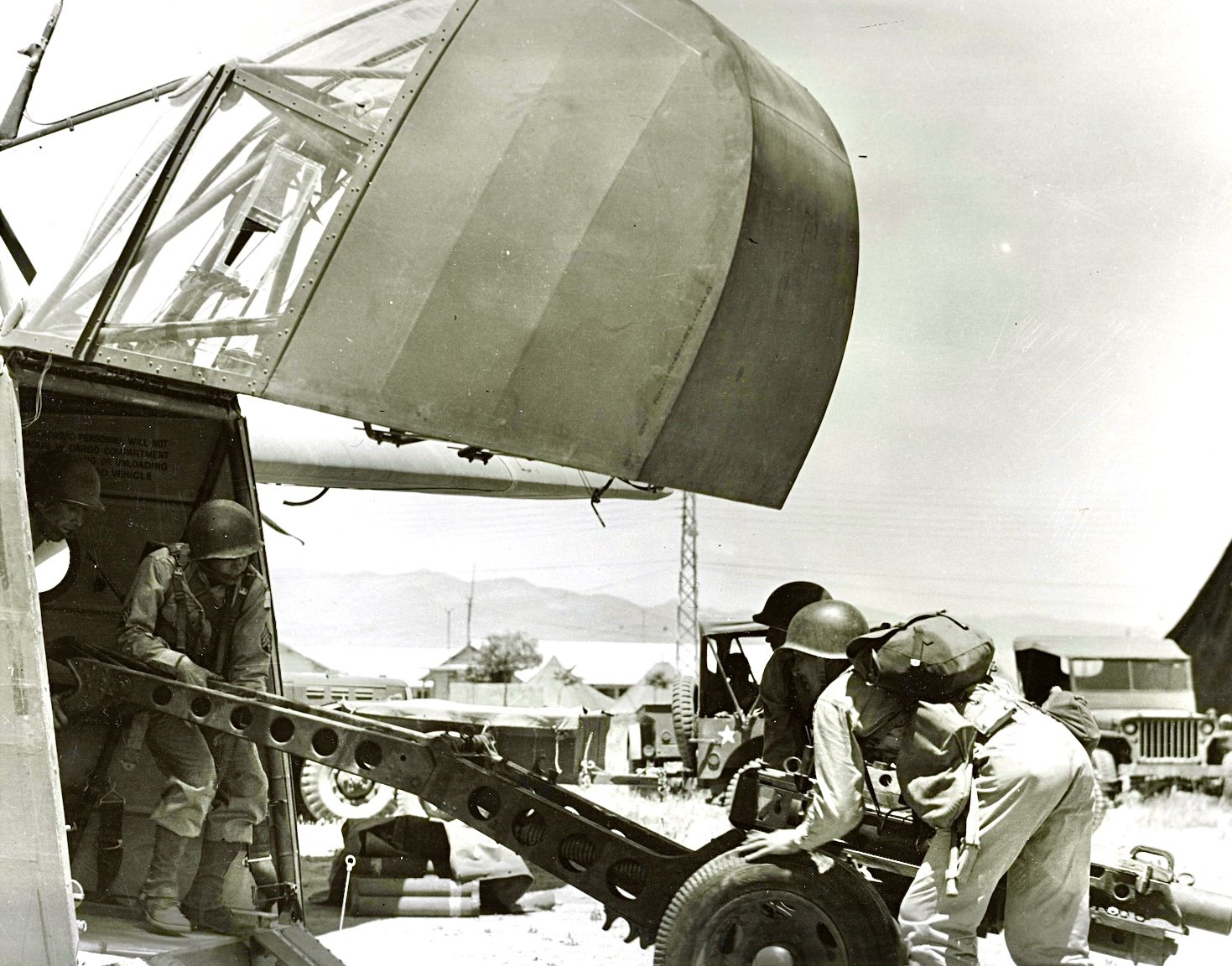
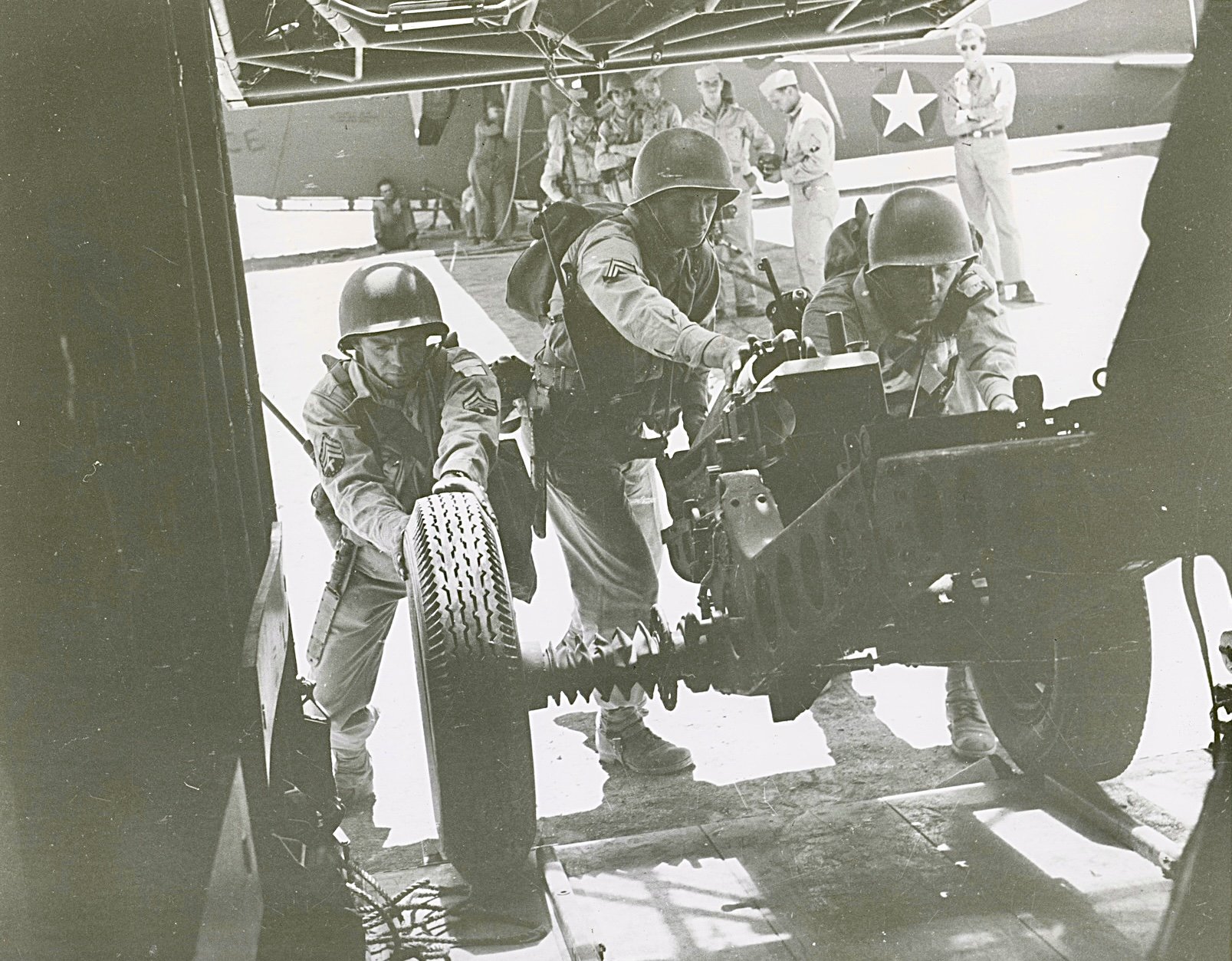
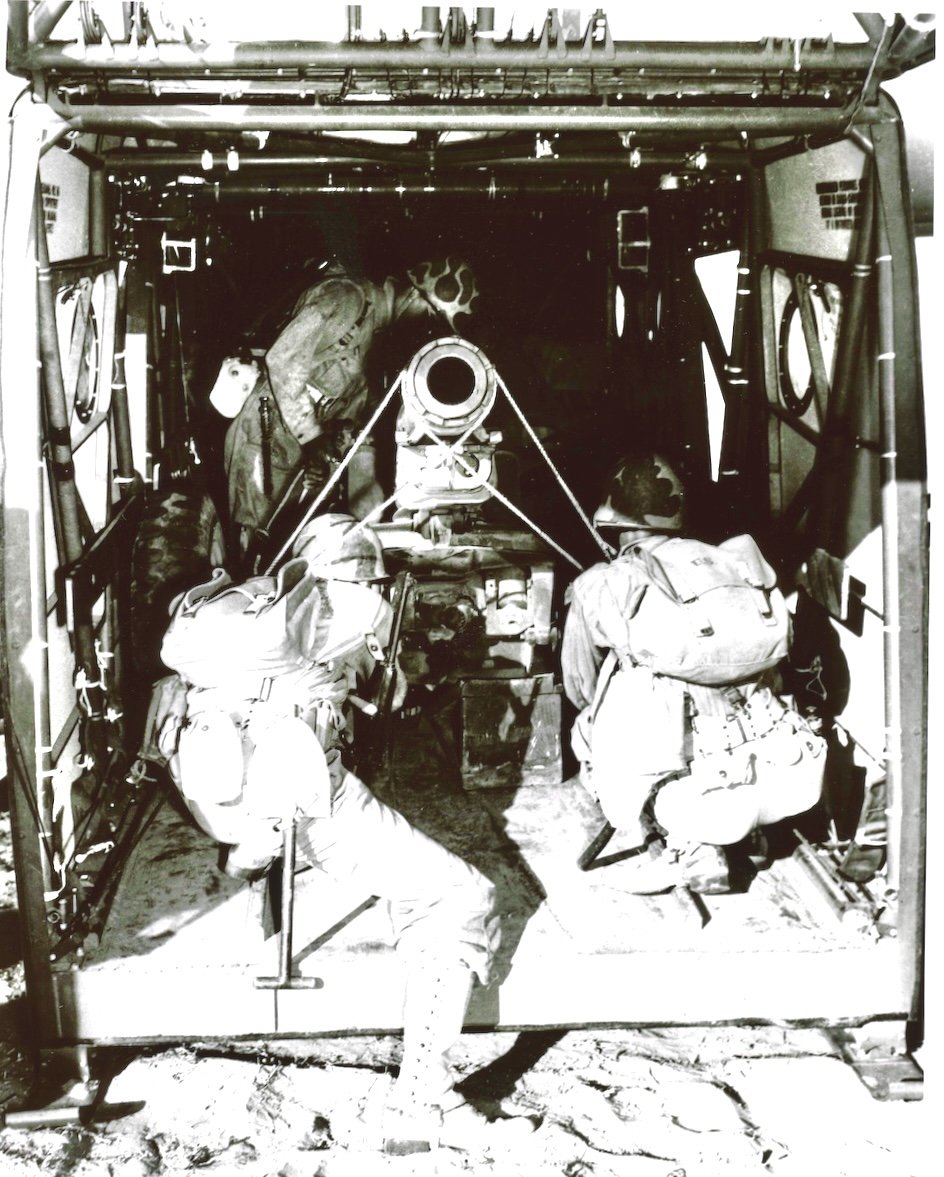
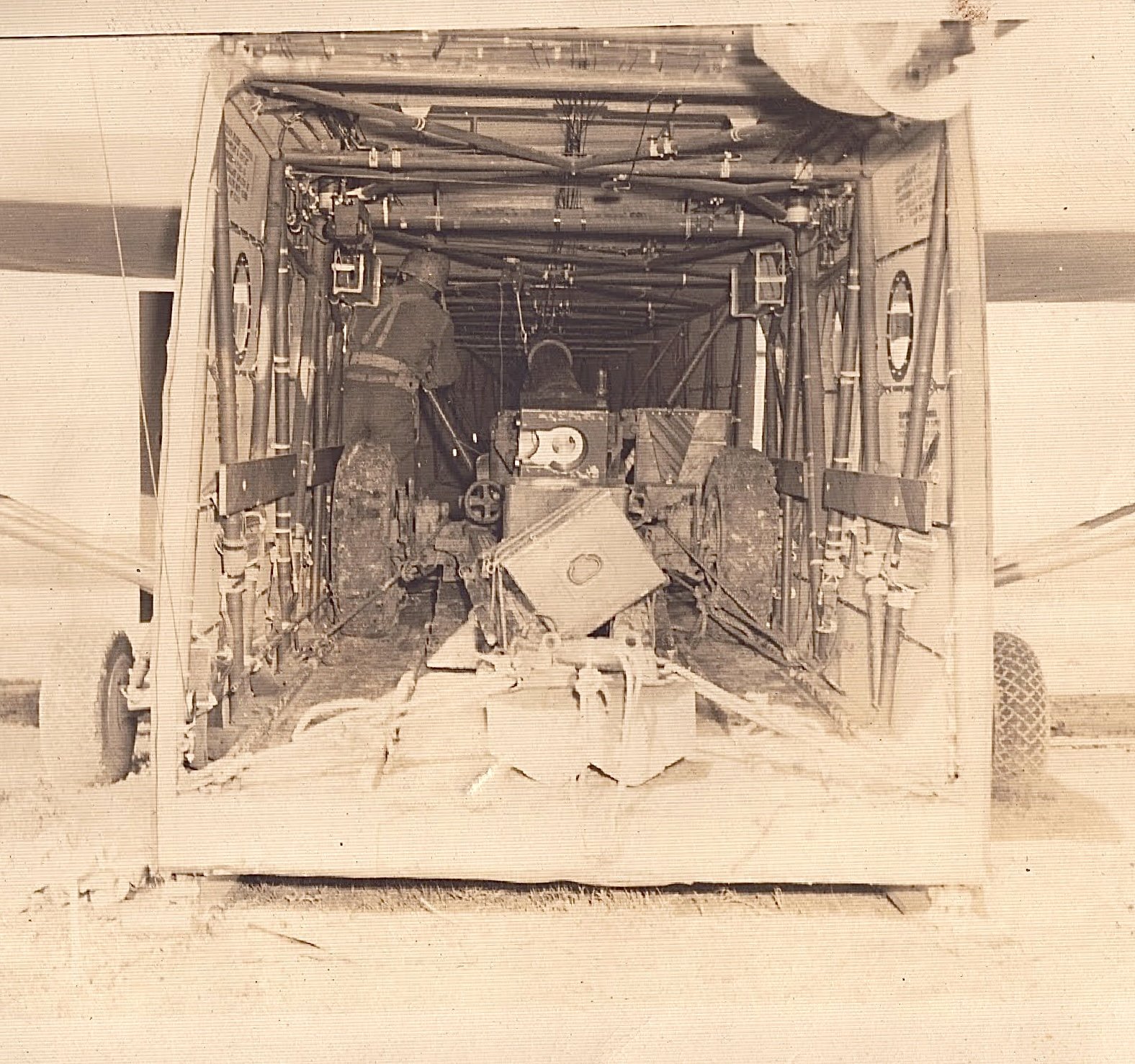
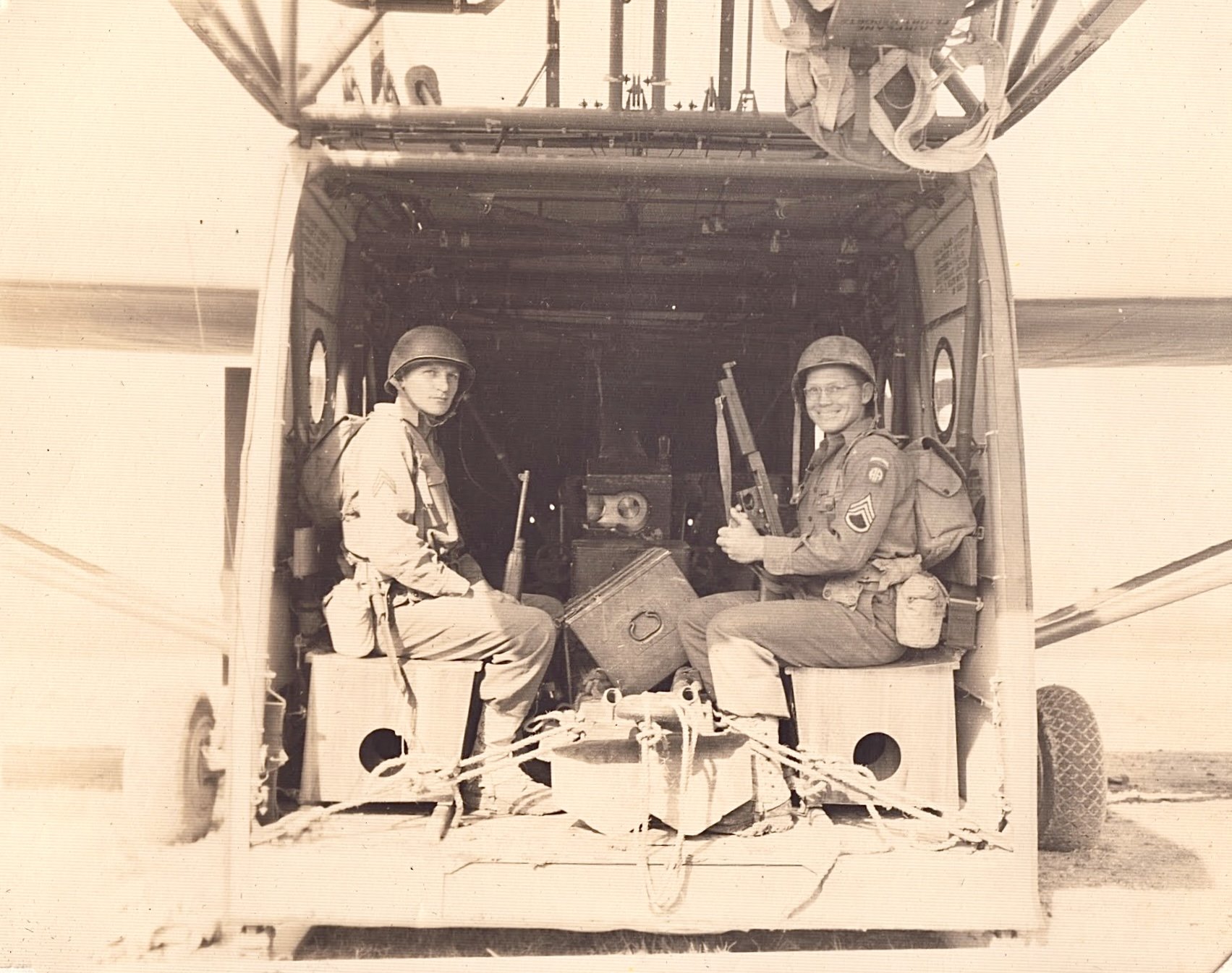
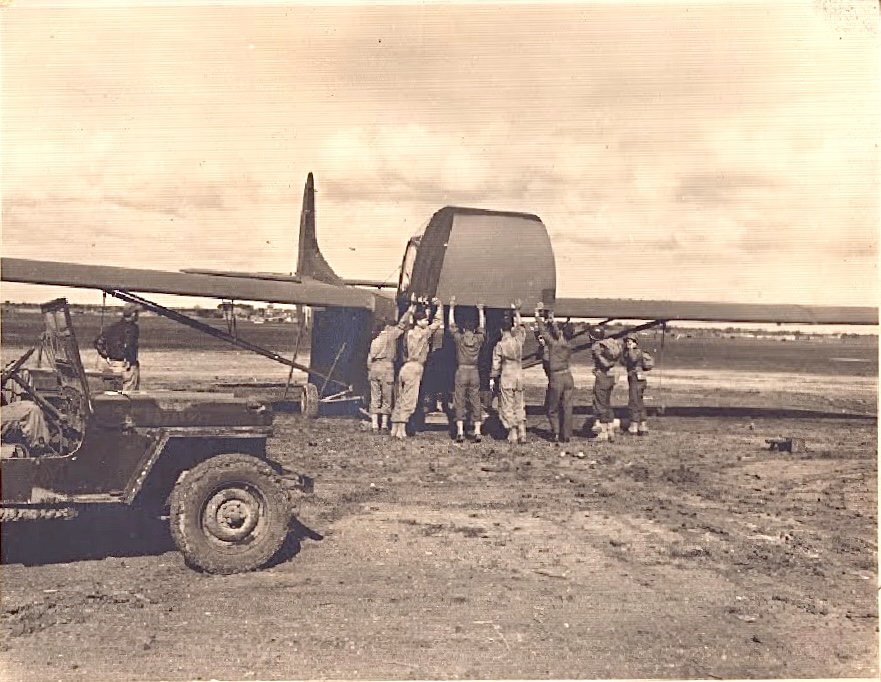
Waco gliders (see above slideshow, side controls to next image) loaded from the nose of the aircraft with men, howitzers, jeeps and ammunition. Photos taken at Bizerte, Tunisia - 1943
Photos courtesy of Carl Kienle and 82nd Airborne Division War Memorial Museum
The 319th held the distinction as the first U.S. Airborne glider artillery unit to fire against and engage the enemy. The 319th and its sister battalion, the 320th, were the only glider field artillery units to make two glider assaults behind enemy lines during the Second World War. The enemy respectfully referred to them as the “the Devils in Baggy Pants.”
319th Waco gliders in tow for combat mission
My father was William M. Bonnamy, ASN 36382255, a member of A-Battery 319th Glider Field Artillery. Though he would protest the description, to me he was a true hero. To him the heroes were the men he fought with.
Dad’s journey to VE Day started in October 1942, at Ft. Bragg, North Carolina. Completing their training, the 319th shipped out for Casablanca, Morocco, arriving May 10, 1943. Dad’s war years began in this “city of strange and exciting contrasts.” Further training and conditioning took place in Algeria and Tunisia, along with the first taste of hostile fire during enemy air-raids.
See a map of the 82nd Airborne Mediterranean-European Theater of Operations.
In September A-Battery was in direct support of Darby’s Rangers. The 319th saw their first combat in the mountainous “Chiunzi Pass,” overlooking the Amalfi coast, Naples, and the volcanic eruptions of Mt. Vesuvius. The operation was intended to cut the supply lines to German troops at the Salerno beachhead and their expected retreat.
Among the very first troops to enter Naples, the 319th didn’t linger, but went on to engage the enemy at the Volturno River, then returned to Naples for occupation duties.
In November, the battalion set sail to Ireland for training and replacements. February 1944 brought the outfit to a new station at Papillon Hall, just outside the village of Lubenham, England.
At their new base glider training, artillery practice, and a final inspection led to their June 6, 1944, D-Day invasion. It was a perilous nighttime glider assault into Normandy codenamed Mission Elmira.
(slideshow, side controls to next image)
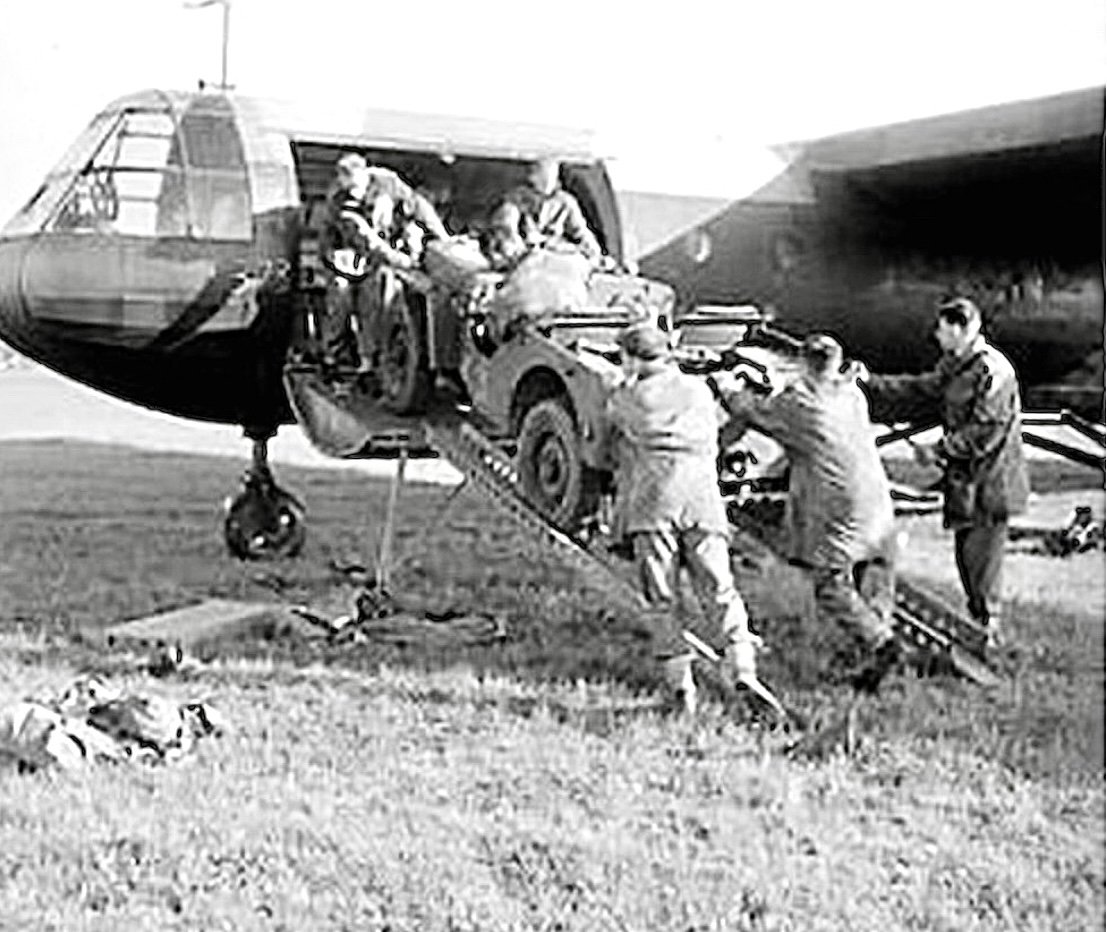
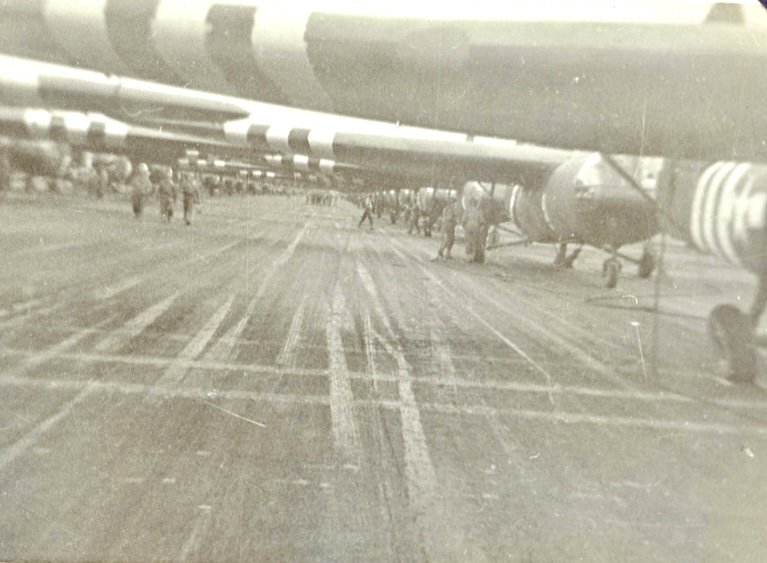
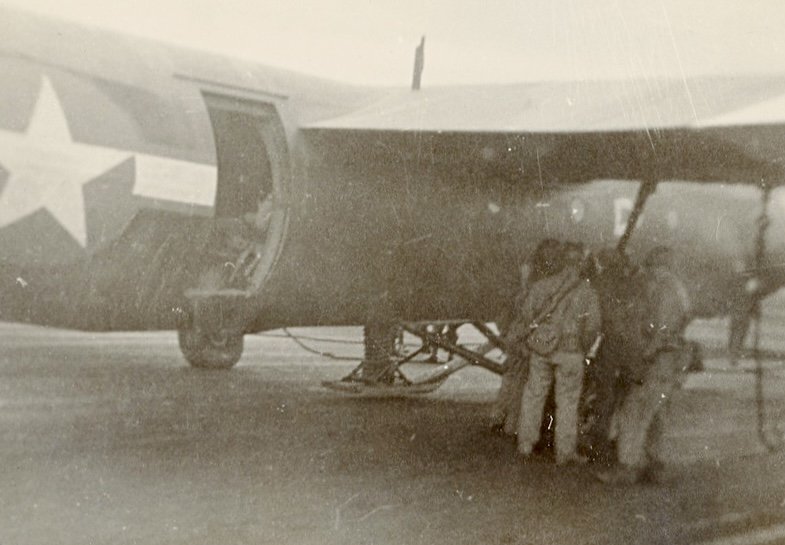
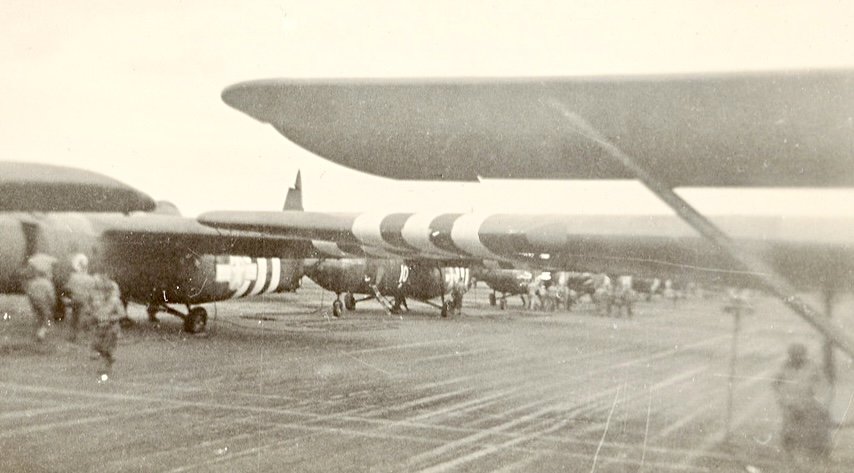
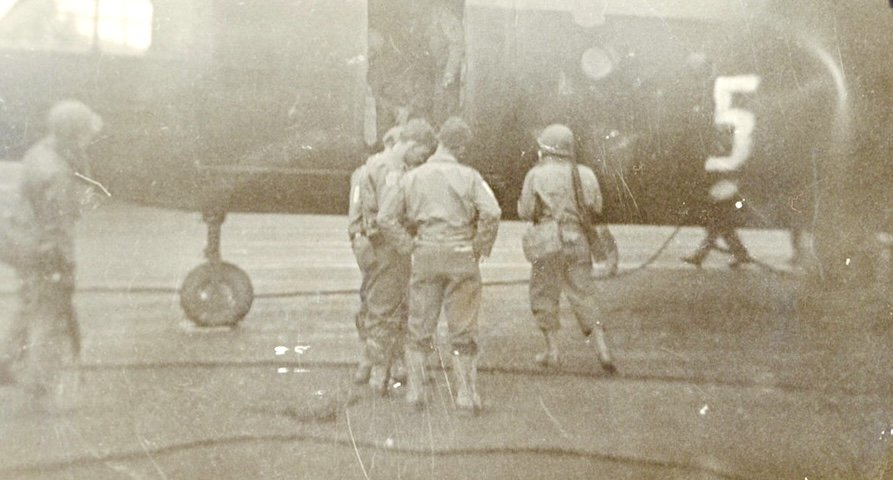
Photos above glider men loading Horsa gliders for D-Day at the RAF Membury Airfield
Courtesy of the John Pachmayer Family
A-Battery - 319th gun section firing at “The Bulge”
Within months, a new glider assault only this time in daylight, for “Operation Holland.”
Just weeks before the end of 1944, a new enemy offensive ushered in brutal fighting in “The Bulge” and the Hurtgen Forest. (see inset photo)
Operations in the City of Cologne followed, as did a link up with Soviet troops across the Elbe River.
The last weeks of the war revealed the Nazi horrors and liberation of a place called Wobbelin.
Amidst so much barbarity the 82nd Airborne insured a proper and decent burial for 200 of the concentration camp victims.
Wobbelin Concentration Camp - May 1945
Photo courtesy of the 82nd Airborne Division War Memorial Museum
The images of war silenced the fortunate who returned home. These young soldiers, many just in their late teens, chose not to talk about their service. By telling their stories I hope to honor their sacrifices each time the story is told.
“A nation reveals itself not only by the men it produces but also by the men it honors, the men it remembers. God bless these soldiers who went all the way.”













